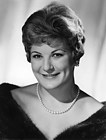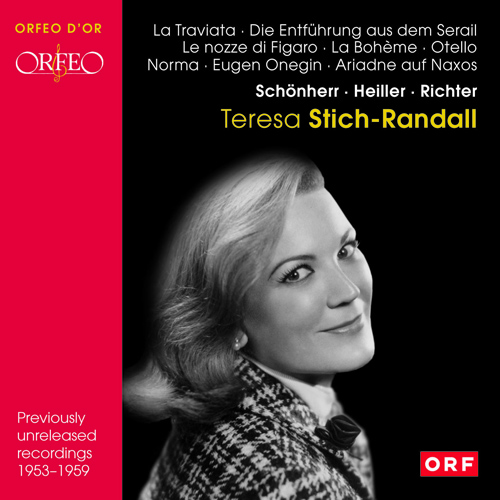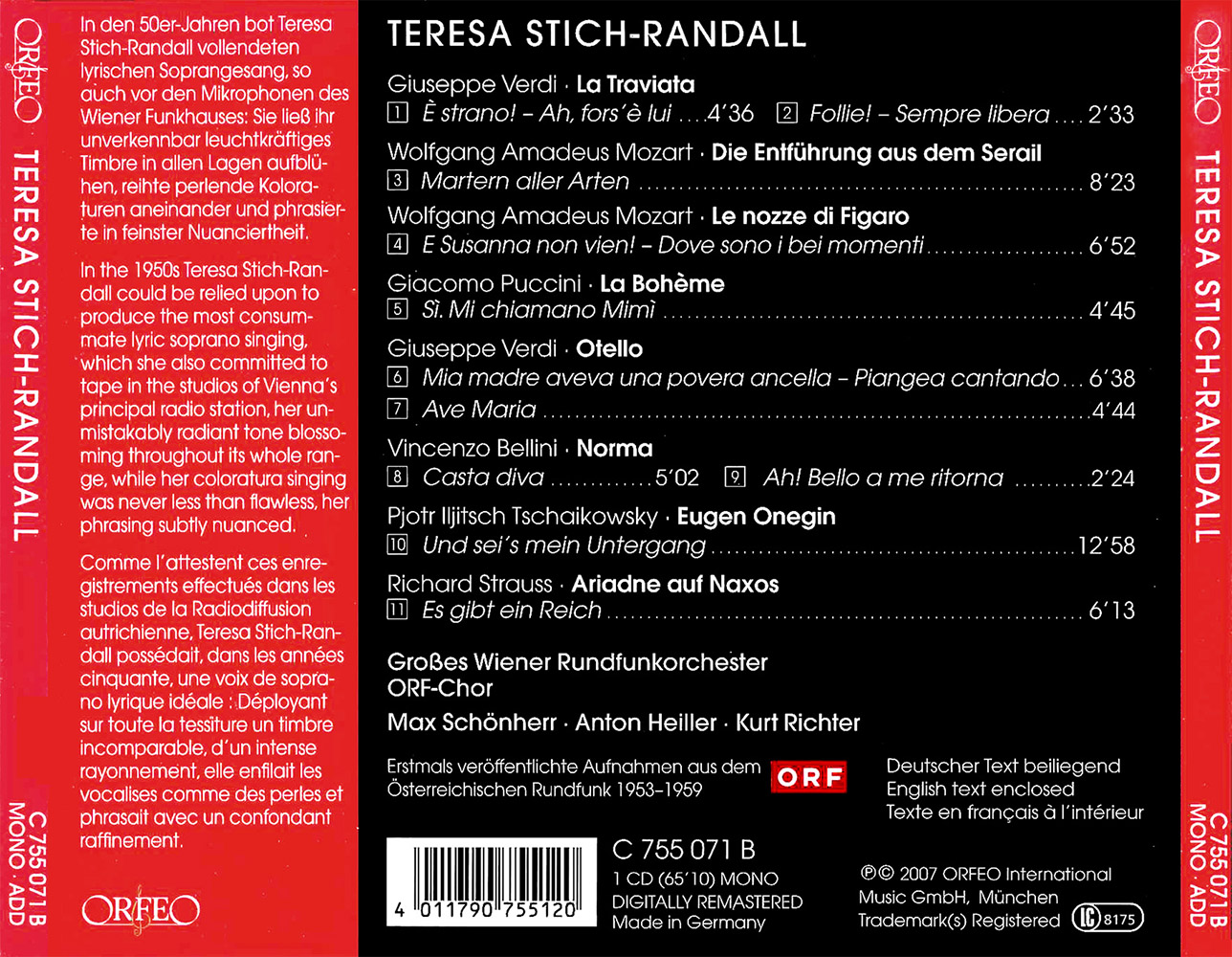Teresa Stich-Randall
The death of Teresa Stich-Randall on 17 July of this year makes us all too aware how close and yet how distant great personalities and their achievements may be to the average opera lover. 
Teresa Stich-Randall
Foto: privatThe soprano’s legendary status dates back to Toscanini’s years with the NBC Symphony Orchestra, when the singer, still in her early twenties, began to conquer the world of opera. Throughout the fifties and sixties she was one of the world’s leading Mozartians, appearing in venues as diverse at the Aix-en-Provence Festival and the Metropolitan Opera, New York. In Vienna, where she was the first American singer to be awarded the title of Kammersängerin, she was not only a welcome guest singer on the stage of the State Opera, she also made regular recordings for Austrian Radio between 1953 and 1959. Together with the Vienna Radio Orchestra she recorded scenes such as the first-act finale of Verdi’s La traviata, the role in which she had made her Vienna State Opera début at the Theater an der Wien in 1952. In addition to excerpts from two of her other Mozart roles – the Countess in Le nozze di Figaro and Konstanze in Die Entführung aus dem Serail – the Austrian Radio archives also include extracts from other operas that Teresa Stich-Randall was to take into her repertory only much later (the title role in Bellini’s Norma, for example) or which she never sang onstage in Vienna (Tatyana in Tchaikovsky’s Eugene Onegin and Desdemona in Verdi’s Otello). Teresa Stich-Randall’s admirers will be delighted to discover that even in dramatic outbursts she never forces her characteristic voice, with its slight hint of fragility and a timbre so ideally suited to the roles of Verdi’s Violetta and Puccini’s Mimì. In all these recordings Teresa Stich-Randall’s singing is distinguished by the technical and interpretative qualities for which she was admired the world over: a perfect legato and phrasing that is as intelligent as it is idiosyncratic, especially in those passages that place the greatest agogic and dynamic demands on the singer. It seems entirely appropriate, therefore, that Orfeo’s compilation of Teresa Stich-Randall’s Vienna Radio recordings should end with the great monologue from Richard Strauss’s Ariadne auf Naxos: “Es gibt ein Reich, wo alles rein ist” – “There is a realm where all is pure”.

















